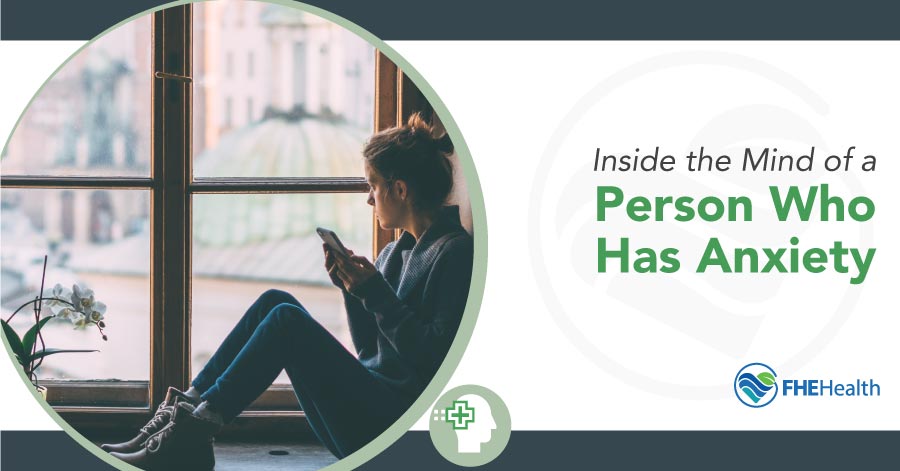
Annabella used to love being out around people. She was the life of the party and always had fun. But recently, she’s started to avoid going out into social situations. She gets nervous and starts to sweat when she thinks about leaving the house. She knows something is wrong, but she isn’t sure what. She doesn’t know how to control these feelings.
From the outside looking in, Annabella’s Aunt Susie knows something’s going on with her niece. She notices the changes that have happened and is worried. She tries to talk to Annabella, but she just can’t understand what her niece is feeling. The situation is creating a rift between the two women, despite how close they’ve always been.
As time progresses, things get worse for Annabella. Even though her family members are telling her to get over her fears and think positively, she can’t shake the anxiety. It’s only after she turns to a counselor that she realizes she has an anxiety disorder that she needs to address.
Aunt Susie works hard to understand what Annabella is going through. It’s hard for her to get it, but they’re able to come together with the help of the counselor. She learns that anxiety disorders are the most common mental health issue in this country, but they are highly treatable for those who seek treatment.
Slowly, Annabella gets the help she needs. She begins to reclaim her life one step at a time. With the help of her counselor, her support system and her loved ones, Annabella finds ways to tame the anxiety and learns how to once again love life. Aunt Susie is proud of her niece and supports her in every way possible now.
How Prevalent Are Anxiety Disorders?
It’s estimated that more than 40 million adults in the United States are dealing with an anxiety disorder. This equates to just over 19% of the adult population. Adults aren’t the only individuals who suffer from anxiety. Most individuals develop symptoms prior to turning 21 years old. Around 7% of kids who are 3 to 17 exhibit signs of anxiety.
There are a few types of anxiety that people may have. These are characterized by different symptoms. They include:
- Social anxiety disorder: Intense fear about social interactions — affects 15 million adults
- Generalized anxiety disorder: Exaggerated and chronic worries about daily activities — affects 6.8 million adults
- Phobias: Fears of specific things or situations — affects 19 million adults
- Panic disorder: Sudden feelings of terror or panic attacks — affects 6 million adults
- Post-traumatic stress disorder: Trigger causes panic attacks — affects 7.7 million adults
- Obsessive-compulsive disorder: A need for everything to be set in a specific order — affects 2.2 million adults
What Happens in the Mind of a Person Who Has Anxiety?
A person who has an anxiety disorder can’t control their thoughts about certain situations. They have difficulty with physical and emotional reactions to their triggers. For some, there is only one trigger, but other individuals have multiple triggers.
Regardless of the type of anxiety disorder a person is dealing with, they’re likely going to feel excessive worry and fear about situations that are normal. There is typically nothing threatening about the situation, but the person’s mind perceives it as a threat.
Some of the more common symptoms that come with an anxiety disorder include:
- Feeling jumpy or tense
- Experiencing dread
- Being restless or irritable
- Shortness of breath
- Heart racing or pounding
- Upset stomach, diarrhea, vomiting
- Frequent urination
- Insomnia or fatigue
- Headaches
- Tremors or twitches
- Sweating
Specific anxiety disorders may have other symptoms. For example, chest pain is a sign of a panic attack, and worries about being humiliated are common with social anxiety disorder. These aren’t controllable in most cases, so they’re hard for the person to cope with. Unfortunately, the symptoms of anxiety will usually impact every area of their life. Even doing normal activities may become impossible.
How Can Loved Ones Help a Person Who Has Anxiety?
One of the worst things you can do if your loved one is showing signs of an anxiety disorder is to tell them to just get over it. This is just going to put more pressure on them and may make the symptoms even worse.
Instead, you need to be able to show them support. Work with them to try to find out what kinds of triggers they’re noticing and what types of symptoms they’re dealing with. Try to guide them into seeking the help they need so they can begin to function normally again. The help may come from mental health counselors, but there’s also a chance that something like a thyroid disorder might be contributing to the anxiety disorder, so their primary care physician may be a critical component of their treatment plan.
Being treated for anxiety isn’t a quick process. It’s going to take time, and they might need extensive support throughout the process. You may consider offering to be one of their support team members, which means you should be prepared to remain available to assist them around the clock when something is making them anxious.
What Happens If They Need More Help?
A person who has an anxiety disorder might be able to manage on their own sometimes. There are instances in which the anxiety progresses and the person will need more extensive help. It’s important to realize that there might not be much loved ones can do until the person is ready to get the help they need. Sadly, only around 36.9% of people who have an anxiety disorder get treatment. The rest suffer in silence.
The counselors at FHE Health are available around the clock to provide support for individuals who need it. Your loved one can call us at (833) 596-3502 to get the assistance they need to learn how to calm their anxious mind.






